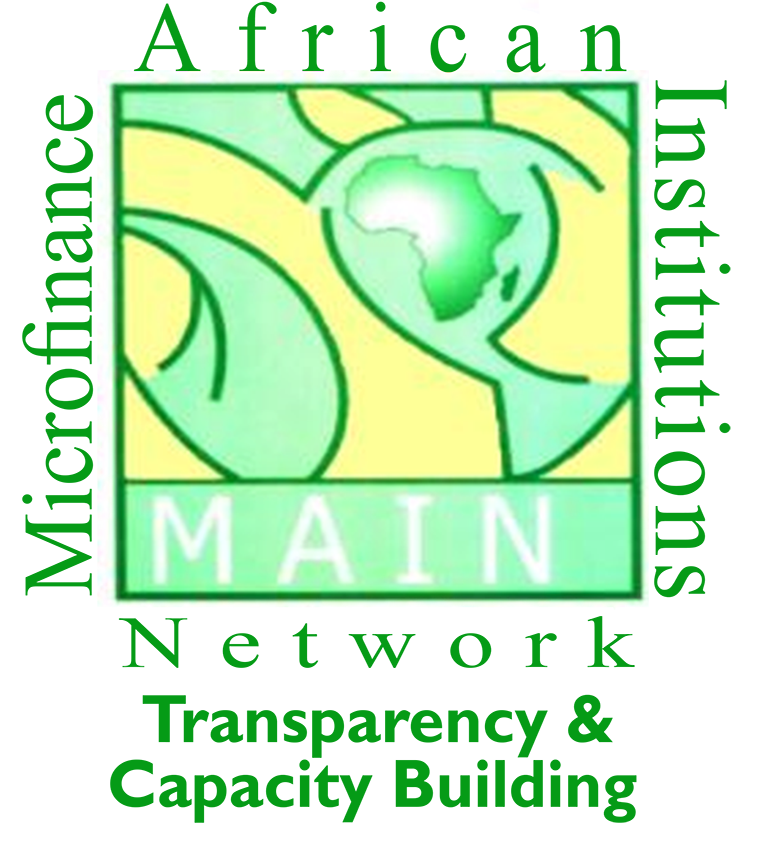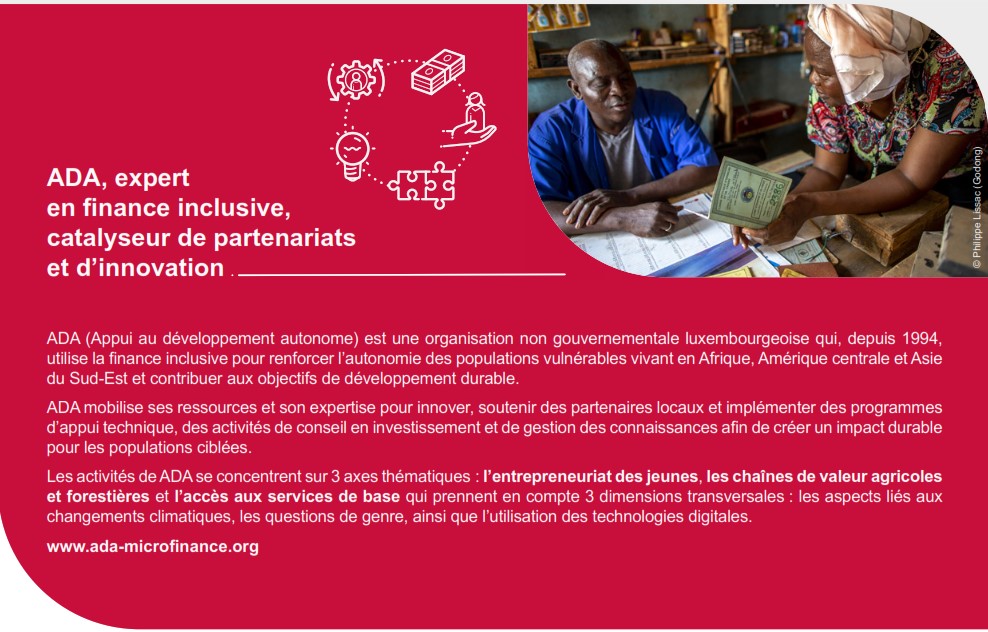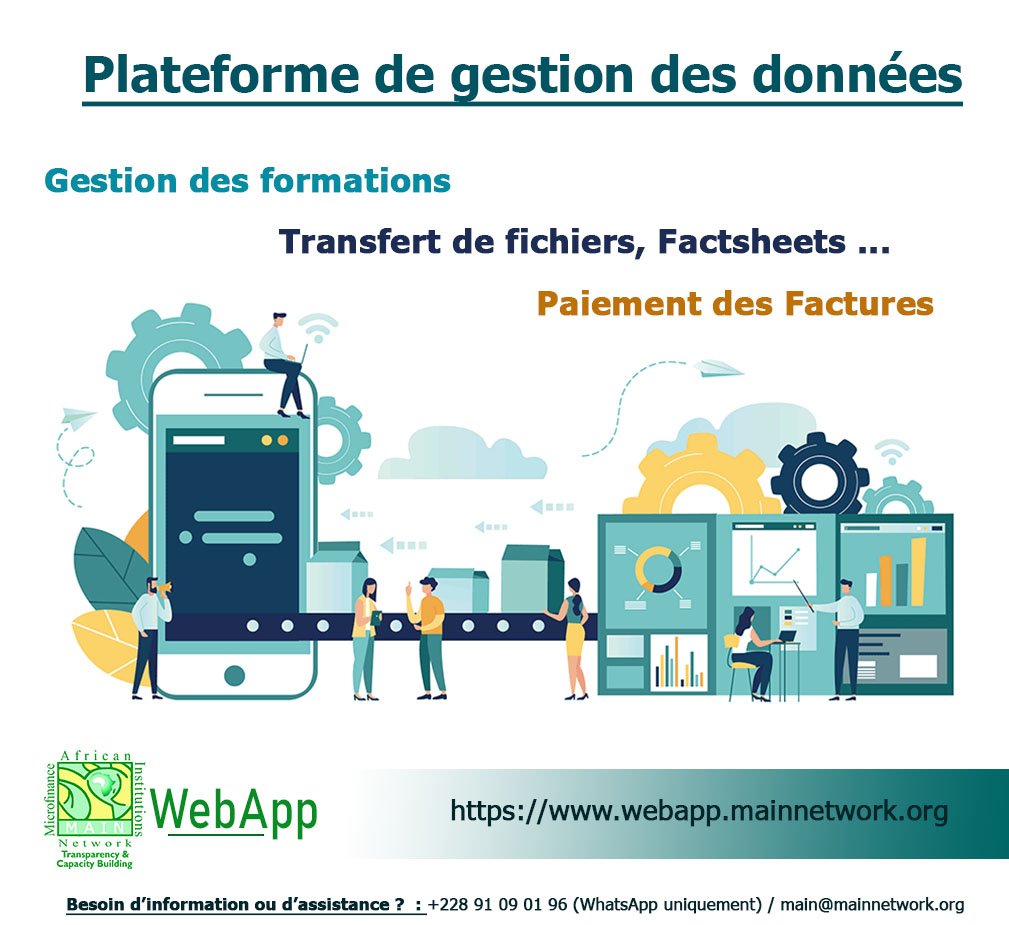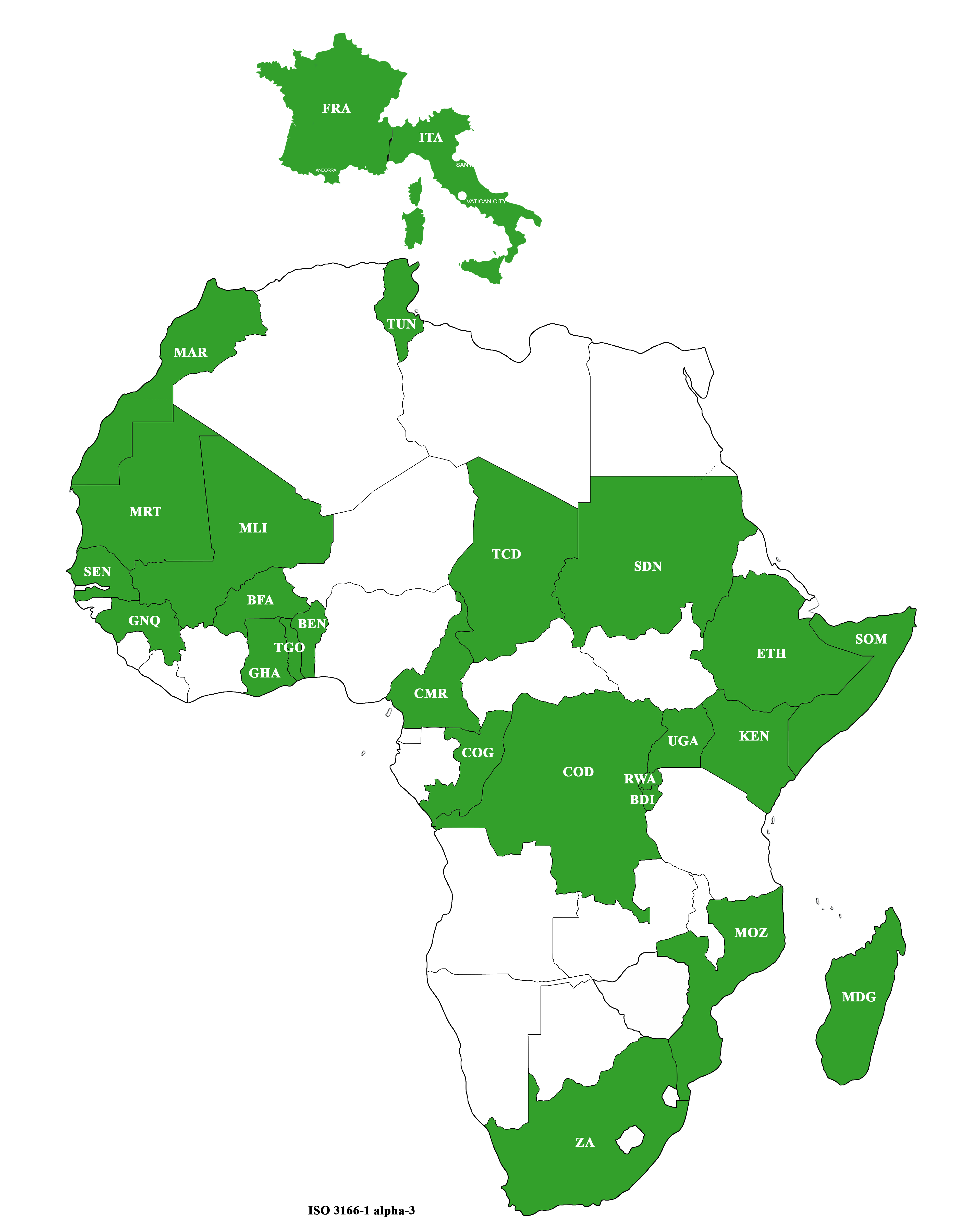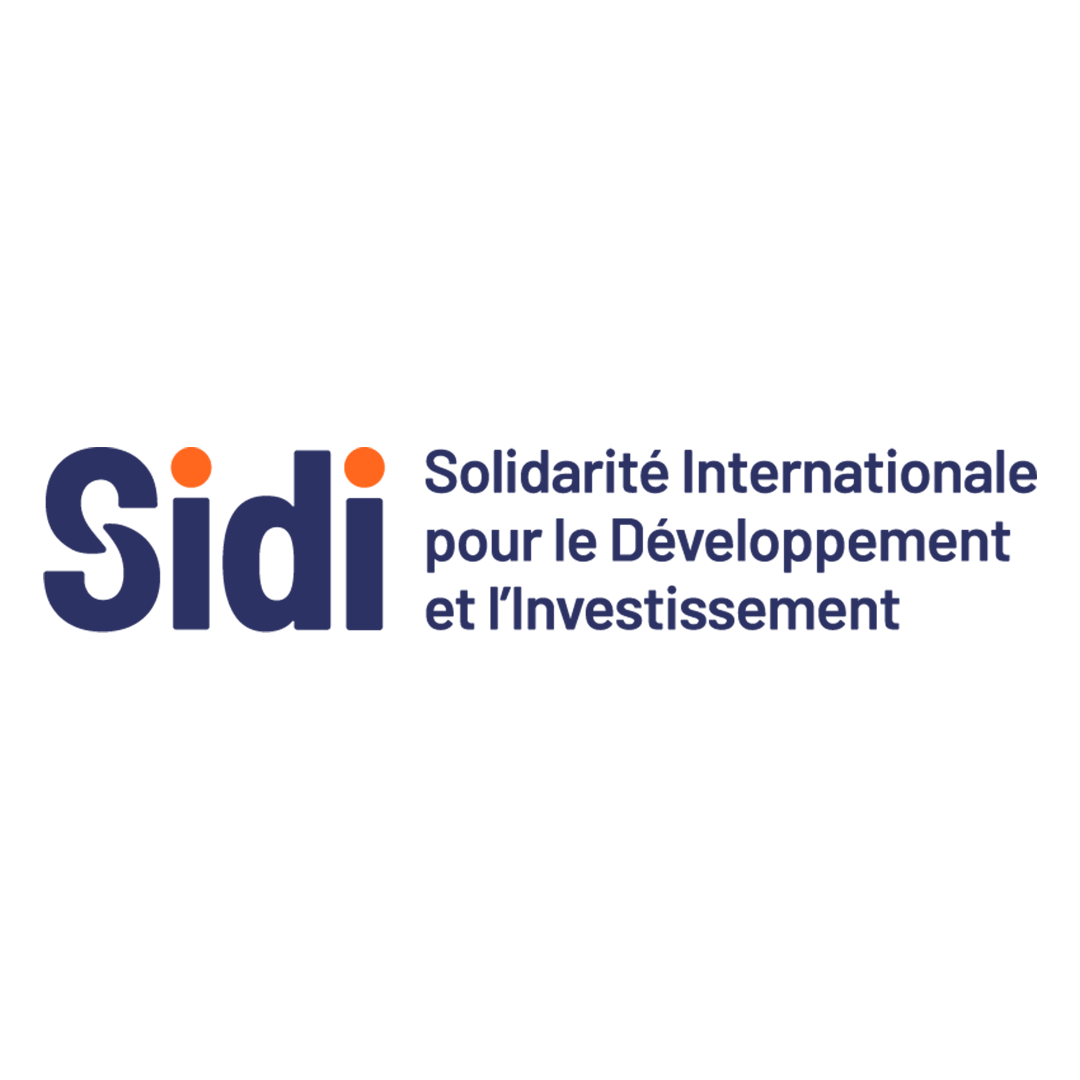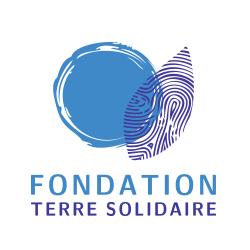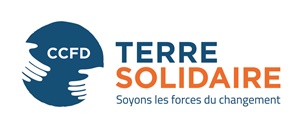MAIN ACTIVITIES OVER THE PERIOD
EDITORIAL
Dear Members,
The resume of work after the summer is always a busy time for MAIN Network. Thanks to our various summer training sessions, we continue to support the work of our partners and members of our network.
MAIN promotes the capacity building of Microfinance Institutions as much as it promotes the experiences sharing so that all together, we, actors of inclusive finance, can respond to the challenges of the sector collectively.
This newsletter is an opportunity for us to come back to the various training activities of the last months and to discuss topics of capital importance for the sector such as: ecological and social transition, Islamic finance, staff motivation mechanisms in MFIs, efficient management of MFIs, etc. Some participants who attended the training gave us their testimony and we thank them for their contribution.
Microfinance is at a crossroads and players must adapt to its ecosystem with new emerging paradigms. We are the agents of change of tomorrow’s microfinance. This newsletter highlights the changes in the sector which give it a new breath on the one hand with a focus on the different activities of MAIN on the other hand.
Capacity building for professionals in the microfinance sector remains our main concern and we hope to welcome many of you during our next training sessions.
Enjoy your reading
Mohamed ATTANDA
Executive Director
THE ACTIVITIES OF MAIN NETWORK DURING THE PERIOD JUNE-AUGUST 2022 ARE RELATED TO EST (ECOLOGICAL AND SOCIAL TRANSITION) INCUBATORS PROJECT, THEMATIC TRAININGS AND THE MASTER’S TRAINING IN MICROFINANCE.
EST Incubators Project: a model of collaboration between MFIs, MAIN and MSMEs (Medium and Small Micro Enterprises)
As part of the project entitled ” Inclusive finance in Africa facing the challenges of ecological and social transition: challenges and capacity building of African actors through an innovative and adapted training offer “, MAIN is experimenting an incubator model with two members institutions, namely Mutual ASJD and WAGES. The establishment of incubators allows MAIN to develop new skills for the creation of small and medium-sized enterprises wishing to engage in activities that contribute to EST: renewable energies, energy efficiency, waste recycling, etc.
The companies selected for this pilot are: Green Industry Plast Togo (GIP-TOGO) LLC, a company specializing in collecting, sorting and recycling of plastic waste, RUCHE/SETRAPAL, whose main activity is the drying and processing of organic food products, in particular the drying of pineapples and fresh mangoes and their marketing, EGENT TOGO, an Electrical Engineering and New Technologies company that supports companies, communities and individuals to have access to sustainable energy at an affordable cost and AgroSolutions and Development (ASD), a company that produces and markets organic soybean meal and oil, floating pellets for Tilapia and catfish, complete and complementary feed for poultry, ruminants and monogastrics.
The diagnosis of each MSME made it possible to identify the axes of intervention on which MAIN could support them and strengthen their organizational skills. Among others we can note:
- Building a Business Plan
- Analytical operating accounting
- Digital Marketing and TES
Testimonial from a EST Incubator project company
We are a company specializing in the collection, sorting and recycling of plastic waste. The collaboration with MAIN network with the support of an Expert on Ecological and Social Transition (EST) issues has helped us a lot to improve our organization, particularly in structuring our business plan. This allowed us to highlight key indicators relating to EST. We had in-depth training on the business plan of a structure that is in EST and which takes into account his parameters . We also had training on cost accounting. I admit that it is a tool for strategic decisions that I did not know at all. I did not know that apart from general accounting there is an accounting called analytical. But with this training and this technical assistance that we got from MAIN , we came to know the meaning of cost accounting that we are putting in place in our structure. We are able to identify the costs associated with our products to know if they are profitable or not. The training really edified us and brought a lot to our institution. From this moment we will improve our way of doing things. We hope to continue benefiting from assistance from MAIN to allow us to become sustainable and competitive .
Mr Bemah GADO
Managing Director Green Industry Plast Togo
In addition to the classic themes that suit them, they must set up or diversify their businesses in the innovative theme of “Ecological and Social Transition”
For the project’s partner, it is an opportunity to acquire knowledge and skills in the design, creation and financing of products and services of an ecological nature. The micro-entrepreneurs will come out very tough from this experiment and will be able during the capitalization workshop to share their experiences, the lessons learned and the challenges encountered.
Cost accounting practice session at EGENT Togo
Strengthening the capacities of financial inclusion actors through appropriate training
Five thematic training sessions were carried out during the period respectively in Togo, the Democratic Republic of Congo (DRC), Ethiopia and Rwanda. These are three training sessions on Ecological and Social Transition (Togo, DRC and Rwanda), one training session on Motivation (Togo) and one training session on Islamic Finance (Ethiopia).
The trainings on Ecological and Social Transition were for the participants and their institutions an opportunity to understand that the major challenge for African MFIs is to offer new financial and non-financial services that allow microfinance to play its role in the context of the fight against the effects of climate change and in achieving the SDGs (Sustainable Development Goals). And to achieve this, MFIs must, with a forward-looking vision, professionalism and experience, be able not only to offer accessible products and services that meet the needs of their customers, but to do so under sustainable conditions of institutional viability, economic and environmental in order to meet both social and environmental challenges. Climatic variations and the difficulty of predicting them jeopardize the livelihoods of microfinance borrowers and threaten the future ability of MFIs to operate in rural areas. The challenge for MFIs is therefore to strengthen the resilience of rural economies through financial service strategies that are better suited to their members/customers.
Presentations, experiences’ sharing, group work were the basis of these training sessions which were very practical and participatory. The participants, at the end of the training, were equipped to:
- Understand the concepts related to Ecological and Social Transition (EST) and be able to develop their first personal concept on EST.
- Know why EST is relevant for their clients and for their institutions;
- Know the main elements of EST and some existing projects and experiences;
- Understand how to integrate EST into the operating mechanism of their MFIs.
Testimonial from a participant of the EST workshop in Rwanda
The training held in Kigali, Rwanda was an excellent training. The training was practical and the questionnaire designed by the facilitator is thorough and requires a lot of time for reflection and verification. Immediately after the training, we organized a meeting with our 32 agencies and also a meeting with the management. Our mission is to serve entrepreneurs and economically active people by providing environmentally friendly, innovative, sustainable, women-centered and quality financial and non-financial services to improve the livelihoods of society by filling the financial inclusion gap. “We are currently working on the revision of our business plan. Smart climate change is one of the major pillars of our new strategic plan. We are working on the triple bottom line by encompassing profit and people and contributing to the well-being of the planet (The Three Ps) Participating in this training helped us to revise and update our mission which takes into account the triple mission of MFIs.
Mr Tezera K. Bekele
Managing Director, Peace Microfinance S.C.
Ethiopia
Regarding the training workshop organized by MAIN on the theme: ” From work to performance: the motivation and commitment of executives to work in microfinance institutions apart from remuneration” , it enabled participants to understand that beyond the issue of salary which is of the greatest concern to the leaders of Microfinance Institutions when it is already an asset for the staff, they must strive to understand the human person as a whole and allow him to reconcile his private life and his professional life. The leader must know how to inspire trust to motivate by being the credible person that employees choose to follow with both character and competence. Leaders must have the ability to bring employees together around the common strategy of the organization and achieve results with and through others using disciplined processes and coach employees as needed to unleash the abilities of each member of the team, to improve their performance, solve problems and develop their careers.
Testimony of a participant in the Lomé workshop on motivation
I would first like to thank the organizer of this training , (MAIN) , the participants and especially the consultant. It is true that before arriving and I even expressed it from the first day that I am waiting to the end and see how we can motivate without the salary. We are indeed at the end of the training and I understood that apart from the salary, there are other elements that must be taken into account in Human Resources Management.
Mrs. Huguette Valentine ADOUKONOU
Managing Director Africa Finances
As for the training on Islamic finance that took place in Addis Ababa, Ethiopia, it is part of the promulgation by the National Bank of Ethiopia (Central Bank) of the ‘Banking Proclamation No. 592/2008 which enabled conventional banks and MFIs wishing to do Islamic banking and open interest-free banking windows from 2011. In addition, Islamic banking has become a rapidly growing universal phenomenon in Muslim and non-Muslim countries alike. Following an assessment needs of members in Ethiopia, it emerged that there was a need for training on this subject. It is in this context that MAIN has decided to organize this training to train and develop its members who have started interest-free banking or plan to do so in the near future to better manage the challenges of adopting interest-free microfinance.
Group picture training on Islamic finance, Addis Ababa, Etiopia
The training allowed in a participatory approach, participants to acquire notions on the piloting, launching and supply of Islamic financial products, including its mechanisms, scope, new product development processes, delivery methodologies and its durability. They are now also able to explain and integrate organizational, operational, governance and regulatory factors in the development of Islamic microfinance products and services and identify appropriate sources of funding and build strategic partnerships with partners, development and promoters of Islamic Microfinance.
With a better understanding of its environment, its governance, its regulations, its supervision, the executives and managers of the microfinance institutions who participated in this training workshop are equipped to identify the main opportunities and challenges of the conversion or diversification towards Islamic microfinance.
The various evaluations of the trainings have revealed that, in view of the positive assessment which stems from the testimonies of satisfaction of the various participants, it can be deduced that the objectives of the training has been achieved.
Strengthen inclusive finance actors through universities programs
As part of its capacity building program, MAIN organized from August 07 to 28, 2022 the residential session of its Master’s program in Microfinance in Yaoundé. This program, which is jointly organized by MAIN in collaboration with UCAC, brought together for the 2022 edition, 35 participants from several countries (Togo, Benin, Cameroon, Mali, Guinea, DRC, Burundi, Congo Brazzaville, Chad, Burkina -Faso, etc.).
Group picture UCAC 2022
It was a real occasion of experiences sharing between inclusive finance players as shown in the testimony below
The training allowed me to acquire so much knowledge in various fields to better manage my organization that I have to prioritize the reorganizations that I will bring and remain pragmatic so that the added value is very quickly visible.
The mix of professionals of the field with university lecture from UCAC gave a special touch to this training session rich in experiences and good practices sharing between participants andfacilitators.
I would like to thank MAIN for having set up a special program of this kind, thanks to UCAC and to its trainers who gave the best of themselves during the session. Thanks to the organizers for this great initiative. I encourage MFIs who are still reluctant to join MAIN to do so because MAIN training is very enriching and practical. This is truly an opportunity to seize for the growth of our respective MFIs.
NDEMIGN Ngaradoum Akominassi
Executive Director of WAKILI SA, Social MFI in GUINEA
This training allows MFI executives to manage their institutions effectively and soundly and better equips them in several areas such as: management , financial analysis, governance, social performance management, strategic planning, internal control , management of information systems, etc. so that they can better meet the demands of a sector that is constantly developing and evolving.
During this session, 19 participants in Master 2 defended their preliminary dissertation project in front of a jury made up of professors from the university. Instructions have been given to each student for what he has to do with the dissertation itself. In terms of training logistics, significant improvements have been made for the 2022 session.
The participants left very satisfied with the organization of this training and the lessons learned during the session.
It should be recalled that this training, intended for managers of French-speaking MFIs, is certified by a Master’s degree in management of MFIs. It has been organized since 2016 in collaboration with the Catholic University of Central Africa It meant for managers and board members of French-speaking MFIs, members or non-members of MAIN. Lasting 2 years, this master involves both academics and professionals from the sector. The training includes three weeks of classes per year on the premises of the UCAC face-to-face. Between the different sessions, the participants work on the platform on which they drop their work and interact with the teachers.
